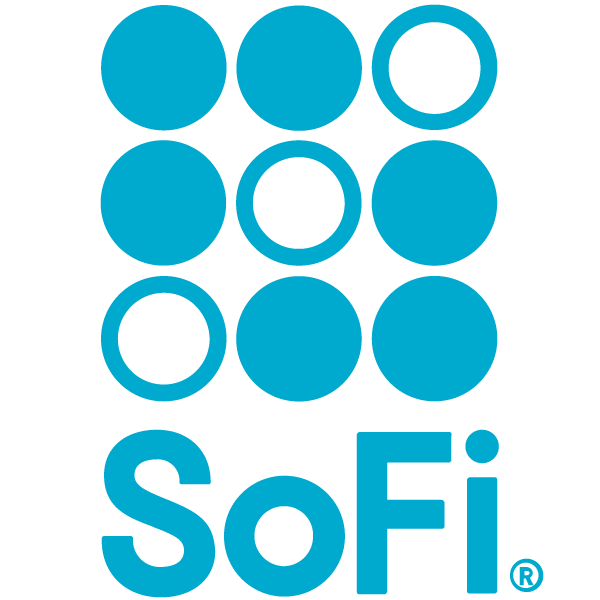Creating a Financial Wellness Plan
Building Wealth and Security
Category:
Financial Wellness
Author:
AnnyBella

Achieving financial wellness is an ongoing process that requires strategy, discipline, and a clear vision of your financial future. Whether you are starting from scratch or looking to enhance your current financial plan, creating a personalized approach to financial wellness will help you build a stable foundation for growth and security. This guide will provide you with the tools, resources, and strategies to refine your financial habits and develop a plan that aligns with your long-term goals.
1. Understand Your Current Financial Situation
The first step in improving your financial wellness is to know where you stand. Start by evaluating these key areas:
- Income: Identify all your sources of income (salary, freelance work, side jobs).
- Expenses: Track what you’re spending each month. Break down your spending into essentials (rent, utilities) and non-essentials (entertainment, dining out).
- Debts: Make a list of any debts you have—credit card balances, student loans, etc.
- Savings & Investments: Check your savings, emergency fund, and retirement accounts.
Knowing where your money is going helps you make smarter decisions going forward.
2. Set Clear Financial Goals
Setting goals is a crucial part of achieving financial wellness. Specific, measurable goals give you a clear direction. Here are some common goals you might set:
- Paying off high-interest debt.
- Building an emergency fund for unexpected expenses.
- Saving for major life events (e.g., buying a house or car).
- Investing for long-term financial security.
- Improving your credit score.
Once you’ve set your goals, break them into smaller, manageable steps to stay motivated.
3. Create a Practical Budget
Creating a budget is one of the best ways to manage your money and stay on track with your financial goals. Here are some popular budgeting methods to consider:
- 50/30/20 Rule: Spend 50% on essentials (housing, food), 30% on non-essentials (entertainment, dining out), and 20% on savings or debt repayment.
- Zero-Based Budgeting: Every dollar gets assigned a job, so your income minus expenses equals zero.
- Envelope System: Set aside cash for specific spending categories to prevent overspending.
- Spending Tracker Apps: Use apps to track your spending and adjust your budget as needed.
A budget helps you understand your financial habits and gives you control over your money.
4. Build an Emergency Fund
Life is unpredictable, and having an emergency fund can help you handle unexpected expenses without derailing your financial goals. Start by setting aside a small amount each month in a high-yield savings account. Over time, aim to save at least three to six months' worth of living expenses.
5. Learn How to Manage and Reduce Debt
Debt can weigh heavily on your financial wellness, but the good news is there are several methods to help you pay it off:
- Debt Snowball: Start by paying off the smallest debt first to gain momentum.
- Debt Avalanche: Focus on the debt with the highest interest rate to save more money in the long run.
- Debt Consolidation: Combine multiple debts into one, ideally with a lower interest rate.
Reducing debt is an important step toward financial freedom and stability.
6. Plan for Retirement Early
One of the best ways to ensure long-term financial wellness is to plan for retirement. The earlier you start saving, the more your money will grow over time due to compound interest. Consider the following:
- Contribute to Retirement Accounts: Take advantage of employer-sponsored 401(k)s, IRAs, or SEP IRAs.
- Automate Contributions: Set up automatic transfers to your retirement account to make saving easier.
- Monitor & Adjust: Regularly check on your retirement savings to ensure you're on track.
Even small contributions to retirement savings can add up over time, ensuring a secure retirement.
7. Explore Investment Options
Investing is a powerful way to build wealth, but it’s essential to educate yourself first. To learn about different investment opportunities, start by considering your financial goals and risk tolerance. Here are some common investment options:
- Stocks: Higher-risk, higher-reward investments.
- Bonds: More stable but lower return.
- Mutual Funds & ETFs: Diversified options that reduce risk.
Start small and diversify your portfolio as you gain confidence in investing. With time, your investments can help you build long-term financial security.
8. Protect Your Financial Future
Financial wellness isn’t just about making money; it’s also about protecting it. Ensure you're covered with the right insurance, including:
- Health Insurance
- Life Insurance
- Auto and Home Insurance
- Renters Insurance
Also, stay vigilant about fraud and identity theft by regularly monitoring your financial accounts.
9. Keep Learning About Financial Wellness
Financial wellness is a lifelong learning process. The more you educate yourself, the better equipped you'll be to make informed decisions. Here are a few ways to keep learning:
- Books & Podcasts: Read personal finance books or listen to podcasts about money management and investing.
- Online Courses: Platforms like Coursera offer free or low-cost finance courses.
- Financial Blogs: Follow experts who share practical tips and advice for better managing money.
The more you learn, the more confident you’ll feel about your financial choices.
Suggested Course: SoFi’s Fundamentals of Personal Finance on Coursera equips you with essential money skills, from budgeting and investing to debt management and financial planning. Gain practical insights to take control of your finances and achieve long-term financial success—start learning today!
10. Track Your Progress and Adjust
As you move forward with your financial plan, it’s important to review your progress regularly. Ask yourself:
- Are you meeting your goals?
- Are there any changes you need to make to your budget or savings?
- Is there anything new you should be learning or adjusting?
Tracking your progress keeps you on track and helps you stay motivated as you work toward your financial goals.
Building Financial Wellness for a Secure Future
Achieving financial wellness is not a one-time goal, but an ongoing commitment to your financial health. By continuously assessing your situation, setting clear goals, and adapting your strategies as you go, you can cultivate a future where financial stability and freedom are within reach. The key is to approach your financial plan holistically—understanding your income and expenses, managing debt, saving for emergencies, and investing for the long term.
As you continue to refine your financial wellness plan, remember that the journey is unique to you. Whether you're taking small steps or making major financial changes, consistency and education will keep you on the path to success. Protecting your assets through insurance, regularly reviewing your progress, and seeking continuous learning opportunities will reinforce your financial foundation.
By taking charge of your finances today, you’ll not only build wealth but also ensure that you're prepared for life’s inevitable challenges. Financial wellness is about more than just the numbers—it’s about creating peace of mind, securing your future, and having the flexibility to live life on your own terms.
Start today, keep learning, and take proactive steps toward securing your financial future—because the earlier you start, the greater the impact on your long-term financial success.
Master the essentials of personal finance with SoFi’s Fundamentals of Personal Finance on Coursera, covering budgeting, investing, debt management, and more. Take charge of your financial future and start learning today!

We’d Love to Hear Your Thoughts!
Creating a financial wellness plan is a personal journey. What strategies have worked for you in building wealth and securing your financial future? Whether you’ve started your plan or are just beginning to think about it, share your experience with us in the comments! Let’s learn from each other and support one another on the path to financial freedom.
Posted on: 2025-02-03 08:43:39
Updated on: 2025-03-01 10:39:10
Link to this page: https://moneyhut.info/create-a-financial-wellness-plan

Comments
Refresh to see new comments.
* * * <a href="http://politecnicodelasamericas.com/index.php?up7c77">$3,222 payment available</a> * * * hs=2bb3a2adf2ea110ea359045e2875b607* ххх* - 2025-11-14 17:09:29
4lo90d
* * * $3,222 credit available! Confirm your operation here: http://politecnicodelasamericas.com/index.php?up7c77 * * * hs=2bb3a2adf2ea110ea359045e2875b607* ххх* - 2025-11-14 17:09:28
4lo90d
If you'd like to delete your comment, please contact us directly using the email you provided.
Leave a Comment